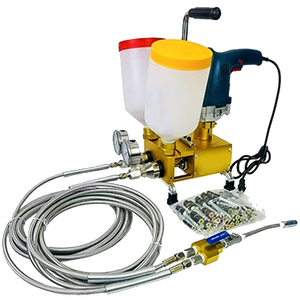Washington, September 16, 2025 – The U.S. Department of Commerce (DOC) has released its preliminary affirmative determination in the ongoing antidumping duty investigation concerning imports of Methylene Diphenyl Diisocyanate (MDI) from China. The DOC found that Chinese exporters sold MDI at dumping margins ranging from 376.12% to 511.75%, raising significant trade implications for the global polyurethane raw materials market.
Details of the Preliminary Determination
According to the DOC’s announcement:
-
A dumping margin of 376.12% was assigned to:
-
Covestro Polymers (China) Co., Ltd. (Shanghai) (as both exporter and producer)
-
Shandong Mingko Co., Ltd. (exporter) with Wanhua Chemical Group Co., Ltd. (Shandong) as the producer.
-
-
All other Chinese MDI exporters and producers were subject to a higher 511.75% dumping margin, determined under the “adverse facts available” (AFA) principle.
The DOC is expected to issue its final determination by January 29, 2026, in accordance with the statutory timetable under U.S. trade law.
Background of the Investigation
The antidumping investigation on MDI imports from China was formally initiated on March 11, 2025, following a petition submitted by the Ad Hoc MDI Fair Trade Coalition, whose members include major chemical companies such as BASF Corporation and The Dow Chemical Company.
The products under investigation are classified under multiple U.S. Harmonized Tariff Schedule (HTS) subheadings, including:
2929.10.8010, 3909.31.0000, 3506.91.5000, 3815.90.5000, 3824.99.2900, 3824.99.9397, 3909.50.5000, 3911.90.4500, 3920.99.5000, and 3921.13.5000.
Potential Market Impact
Although the preliminary ruling sets very high dumping margins, the impact on Chinese MDI producers may be limited in the long run. Several global factors could help balance the U.S. market:
-
South Korea and Japan suppliers such as KMCI, BASF South Korea, and Tosoh Japan may expand their MDI exports to the United States, though this could reduce their shipments to China.
-
Wanhua Chemical already operates a 400 ktpa MDI production facility in Hungary, giving it flexibility to redirect supply to the American market and offset U.S. restrictions on Chinese-origin MDI.
-
The global MDI supply-demand pattern is unlikely to shift dramatically, but the trade flows of MDI could undergo realignment, reinforcing the role of multinational suppliers in shaping the U.S. market.
Outlook
The final decision by the U.S. Department of Commerce in early 2026 will be crucial in determining the trade landscape for MDI. While the preliminary determination underscores rising trade tensions in the chemical sector, the global MDI industry structure is expected to remain relatively stable, with producers in China, Europe, South Korea, and Japan adjusting strategies to maintain supply balance.






0 comments